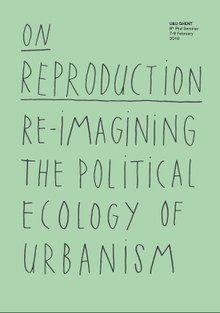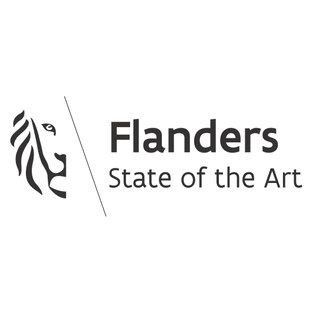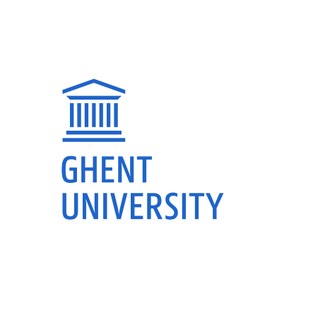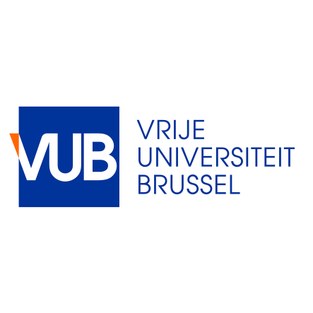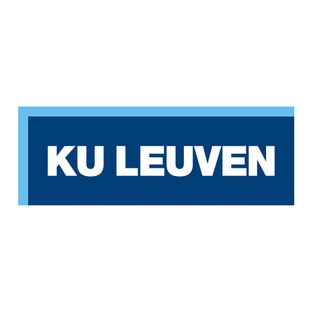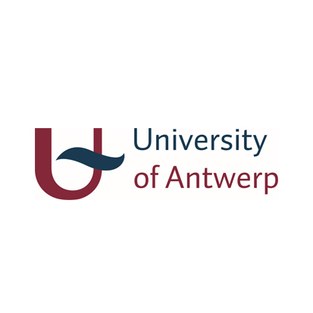U&U - 9th edition of the PhD Seminar in Urbanism & Urbanization
After successful editions in Leuven, Venice, Barcelona, Paris, Delft, Lausanne, the next edition of the PhD seminars in urbanism and urbanization will be hosted in Ghent, Belgium.
Like previous editions, the seminar seeks to bring together students writing their PhD thesis in urbanism, working within very different disciplinary traditions, combining historical research, design research and different forms of urban research.
The community supporting this seminar series over the years shares an interest in work that tries to speak across the divide between urban studies and the city-making disciplines, seeking to combine the interpretation of the process of urbanization with the commitment and care for the urban condition in all its manifold manifestations, and bring together urban theory and the theoretical grounding of urbanism.
The seminar welcomes all PhD students working in this mixed field. The call for papers of each edition foregrounds a set of themes that will be given special attention. We invite students to respond to these thematic lines, however, papers addressing other themes and concerns will also be taken into consideration.
On Reproduction: Re-Imagining The Political Ecology Of Urbanism
Each period of urbanization comes with its urbanisms. At times these are clearly defined and constitute distinct paradigms that fill handbooks, structure curricula and form schools. At other times they are contested and subject of vigorous debate. Today, urbanism is a field in flux, forced to engage in new urban questions and address pressing social and ecological concerns. As a direct result the contemporary list of epithets qualifying the notion urbanism has become virtually endless.
In this edition of the urbanism and urbanization seminar we want to think the urban question as a matter of political ecology, joining the transdisciplinary efforts to think nature inside the political economy of urbanization and to develop a perspective on urbanism that unites ecological and social justice concerns. In order to do so, we proceed from a notion which has defined urbanism within poltical economy, namely the question of ‘social reproduction’.
Reproduction is a term rooted in Marxist vocabulary that provides an analytic lens to think the ways in which the logics of capitalist production have been socially embedded. Urban questions can be understood as questions of social reproduction, in which typically three concerns intersect: (1) the reproduction of life itself pointing to the bio-political core of urbanism; (2) the reproduction of value, thinking the division of labor, the role of paid and non-paid labor, the split between use and exchange value, internal and external economies, positive and negative externalities, etc.; (3) the reproduction of the institutional and infrastructural arrangements put in place to enable production processes, interrogating the fixed capital and infrastructure cities are made of. Urbanisms are specific propositions regarding the collective arrangements needed in order to address and organize questions of social reproduction in an urbanizing society.
Within the historical Marxist perspective ‘social reproduction’ has typically served as a critical lens to expose urbanism as an ideological project that provides the social support for capitalist production and uneven capital accumulation (Harvey, Castells, Préteceille, …). Beyond the ideological critique, starting from questions of social reproduction is also an invitation to think alternative urbanisms and imaginaries to this dominant story of uneven development, dispossession, gentrification and environmental injustice. Can we imagine urbanisms that do not treat social reproduction as an afterthought of production, as a necessary form of compensation. What do such reproductive urbanisms that renders the lives of people living in cities more just, more meaningful and more inclusive look like?
Revisiting the question of ‘social reproduction’, we find ourselves in the midst of discussions that are both new and old at the same time, discussions regarding the metabolic basis of our cities, the ways cities care for their citizens, keep them healthy or make them sick; the ways we share and distribute resources, both physical resources as well as social opportunities; the ways we feed our cities and fail to give citizens control over what they eat; the ways we make citizens mobile or not, car-dependent or blessed with multiple mobilities. The vigorous yet contested quest for alternative urbanisms makes us aware of the rather limited terms through which the field of urbanism has traditionally addressed questions of social reproduction, placing the emphasis on the reproduction of labor and the concomitant concern for housing and infrastructure. Thinking urbanism in the reproductive nexus is an invitation to think the biopolitical basis of urbanism in its full breath, reaching out to the key discussions that shape the urban agenda in the Anthropocene, or should we say ‘capitalocene’.
Proceedings
Conference program
Download detailed program U&U 2018
Keynotes
Hillary Angelo
Hillary Angelo is an Assistant Professor of Sociology whose research examines the interactions between social understandings of nature and processes of urbanization. She is interested in how ideas about nature are formed, the social conflicts they produce, and how they are deployed to influence the built environment. She is currently preparing a book manuscript on the history of urban "greening" in Germany's Ruhr region, and is at work on two new projects: one on infrastructure and sociology, and the other on issues of democracy and equity in sustainability planning. Hillary received her Ph.D. in Sociology from New York University and holds a B.A. from Vassar College. Before returning to graduate school, she worked for five years with the New York City Department of Parks & Recreation, primarily on issues of participatory design, immigration, and public space use.
Chiara Tornaghi
Chiara is a critical human geographer and scholar-activist, with a background in politics, sociology and planning. She has been a lecturer and researcher at the Cities and Social Justice Research Cluster, in the School of Geography, University of Leeds (2008-2015); City of Vienna Visiting Junior Professor at the Interdisciplinary Centre for Urban Culture and Public Space (SKuOR), TU Vienna (2009); and Teaching Fellow at the Faculty of Sociology, University of Milano-Bicocca (2005-2008) and the Faculty of Architecture and Society, Politecnico of Milan (2008-09). She is a member of the Steering Committee of the International Critical Geography Group and Fellow of the Royal Geographical Society (RGS), where she is affiliated to the Geography of Justice working group.
Since 2006 she has been involved in a number of EU FP research programs, and since 2013 she is co-chairing Working Group 5 (‘Urban agriculture metabolism’) within the EU funded COST Action “Urban Agriculture Europe”.
Lukasz Stanek
Lukasz Stanek graduated in architecture and philosophy after studies in Kraków, Weimar, Münster, and Zurich, and he received his doctorate at the Delft University of Technology (2008). Besides Delft, Stanek was teaching at the Berlage Institute (2008), Harvard University Graduate School of Design (2012), and at the Federal Institute of Technology (ETH) Zurich, where he was junior faculty at the Institute of History and Theory of Architecture (2009—2011). He received fellowships at the Jan van Eyck Academie (Maastricht), the Institut d’Urbanisme de Paris, the Canadian Center for Architecture (Montreal), and the Center for Advanced Study in Visual Arts (CASVA) at the National Gallery of Art in Washington D. C., where he was the 2011—2013 A. W. Mellon Post-Doctoral Fellow.
His research focuses on architecture and the built environment since the post-war period, straddling two main themes. First, departing from the work of Henri Lefebvre (1901-91), He is exploring critical debates in architectural culture since 1968 and their consequences for research, practice, and discourse of architecture until today. His second research field, focuses on architecture and planning in socialist countries in a global perspective. On this topic, he edited recently the book Team 10 East. Revisionist Architecture in Real Existing Modernism (Museum of Modern Art in Warsaw/ Chicago University Press, 2014).
Book of abstracts
To come soon
Practical information
Timing
| Deadline abstracts: | Monday, October 2nd 2017 |
| Notification of Acceptance: | Early, November 2017 |
| Deadline full papers: | Monday, January 8th 2018 |
| Conference: | Wednesday, February 7th – Friday February 9th 2018 |
Conference venue
Ghent University – Campus Boekentoren – Department of Architecture & Urban Planning
Jozef Plateaustraat 22, 9000 Gent, Belgium
Registration
Everybody who wants to attend the conference must register in advance here on this site before February 2nd 2018.
Organization
Organizing Committee
Michiel Dehaene (UGent), Greet De Block (UA), Michael Ryckewaert (VUB), Viviana D’Auria (KUL), David Peleman (UGent), Martin Dumont (UGent), Julie Marin (KUL), Griet Juwet (VUB), Ide Hiergens (UA-KUL), Chiara Cavalieri (EPFL)
Scientific Committee
Michiel Dehaene (UGent), Pieter Uyttenhove (UGent), Paola Viganò (EPFL), Dominique Rouillard (ENSA Paris-Malaquais), David Grahame Shane (GSAPP), Elena Cogato Lanza (EPFL), Bruno De Meulder (KUL), Brian Mc Grath (The New School), Carola Hein (TU Delft), Els Verbakel (Technion Israel Institut of Technology), Chiara Tornaghi (Coventry University).
